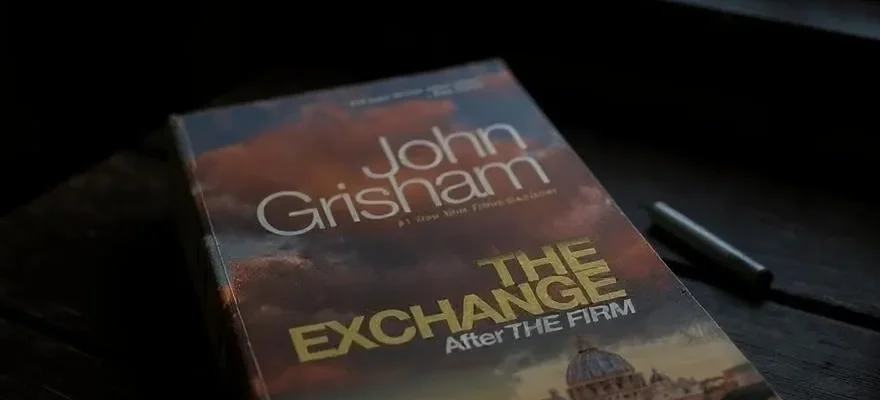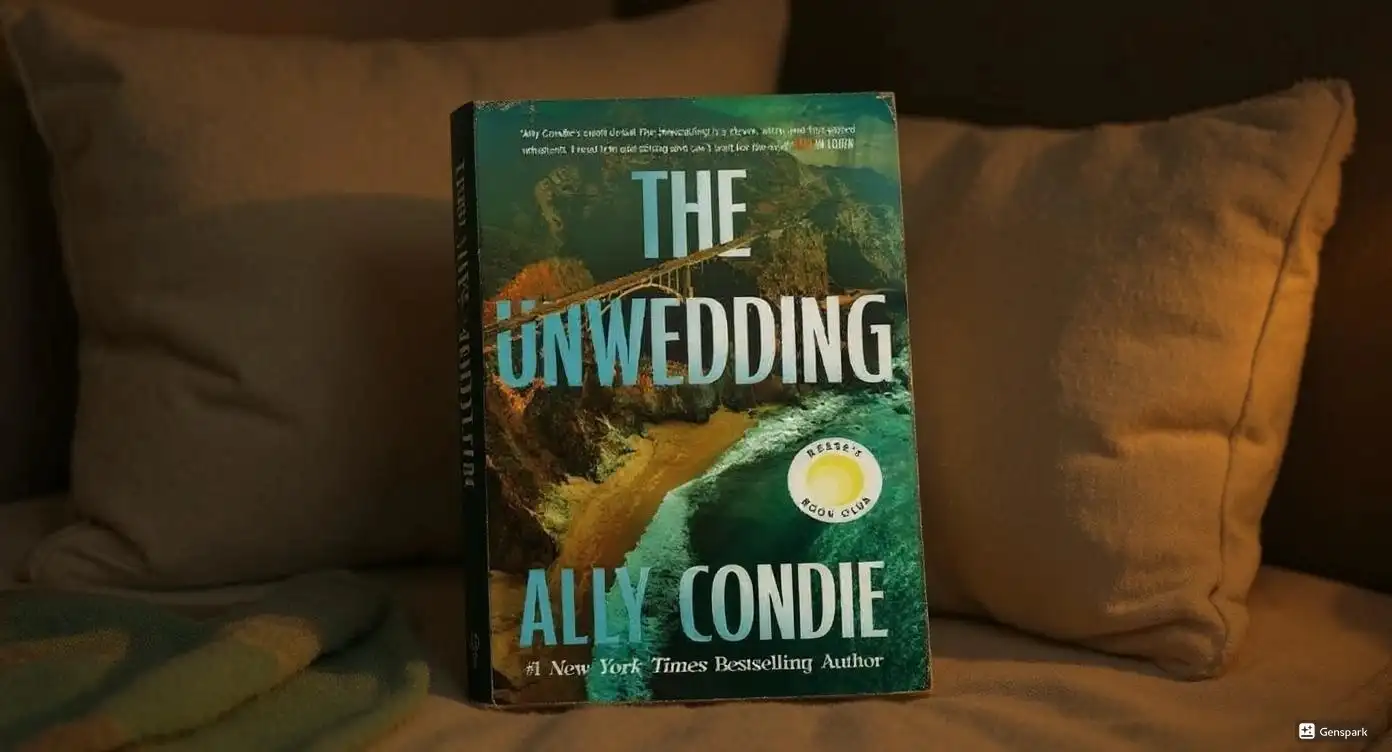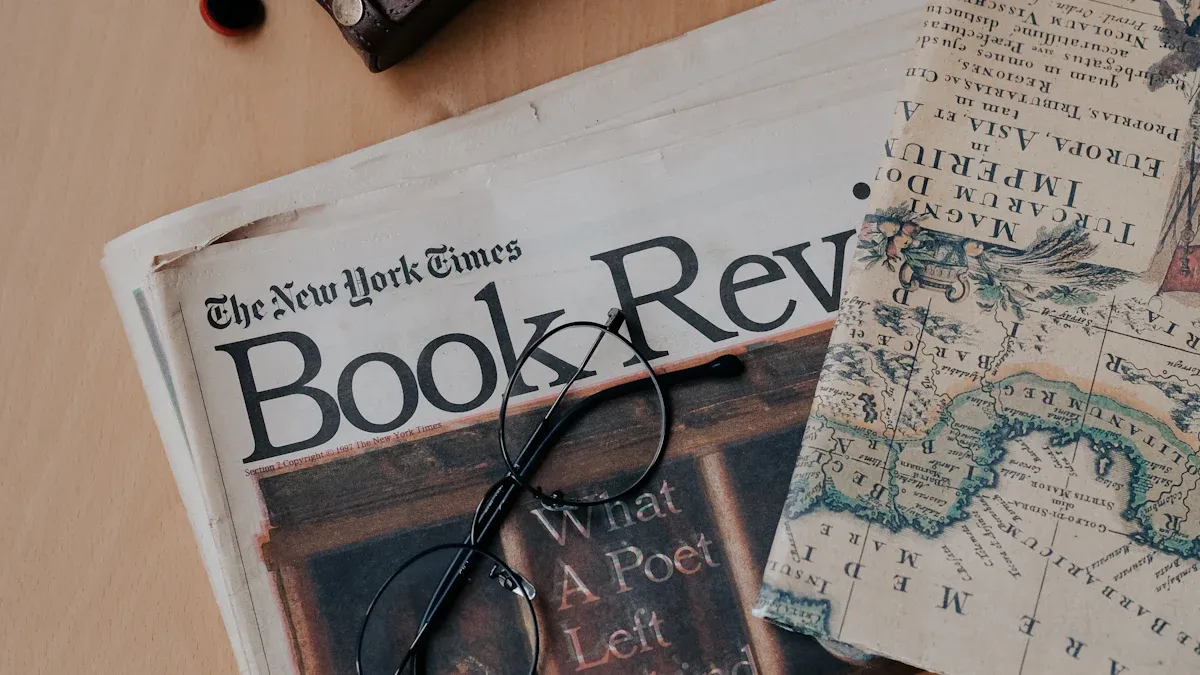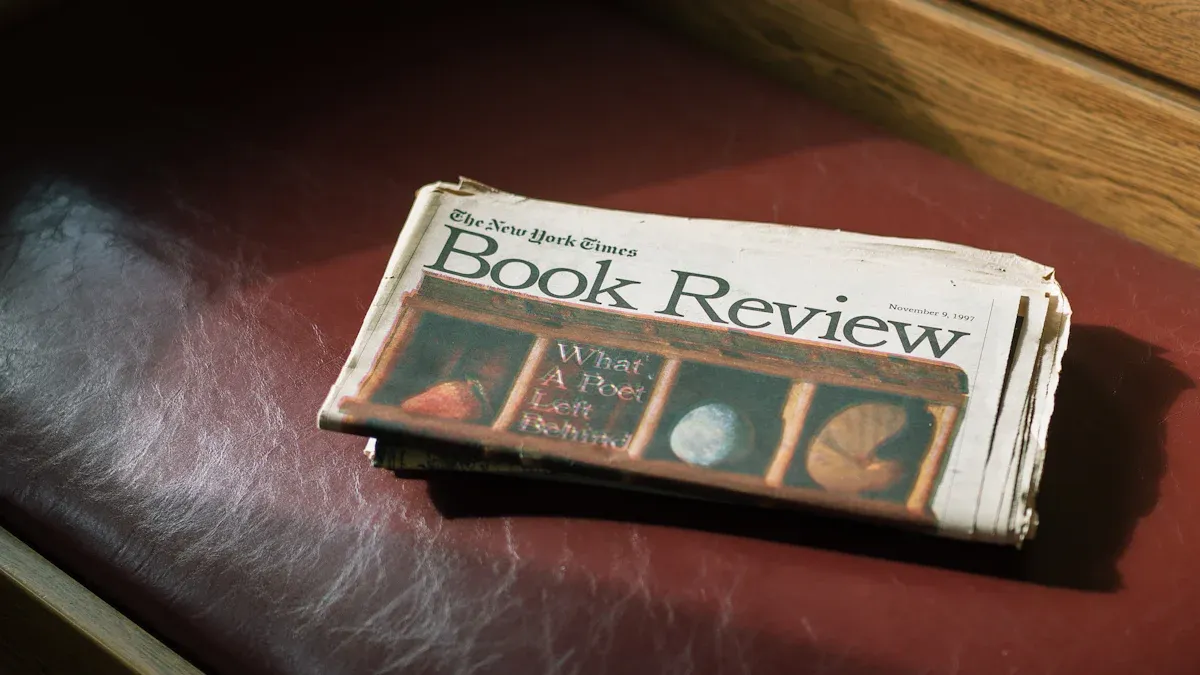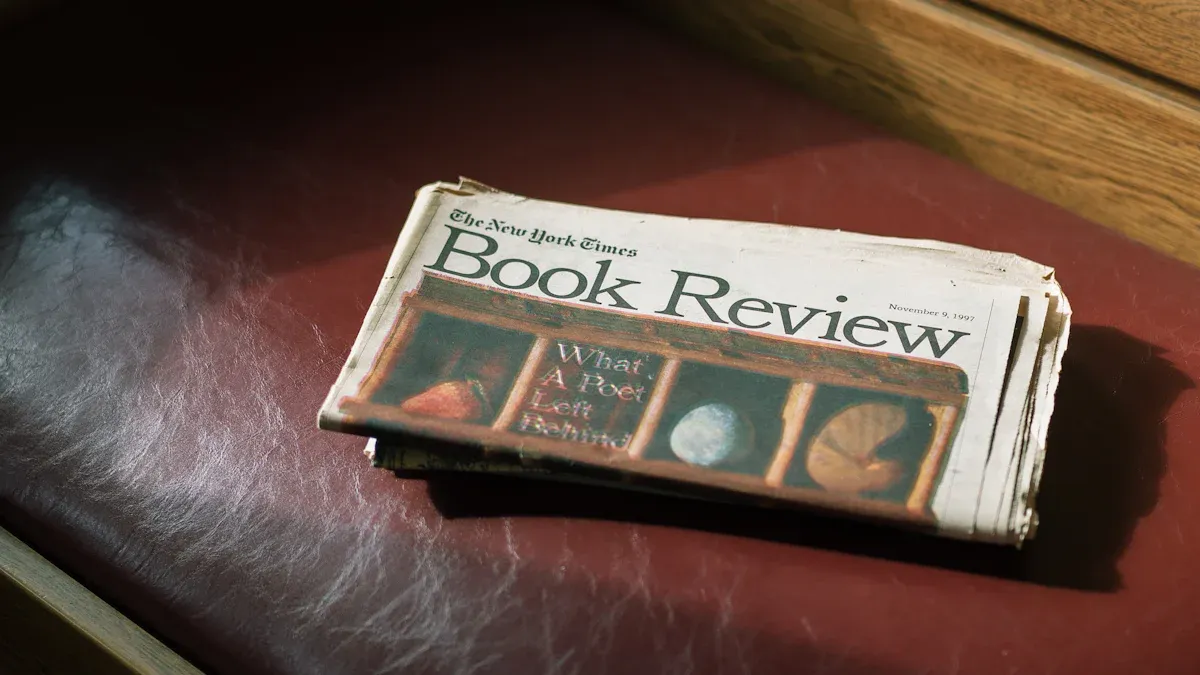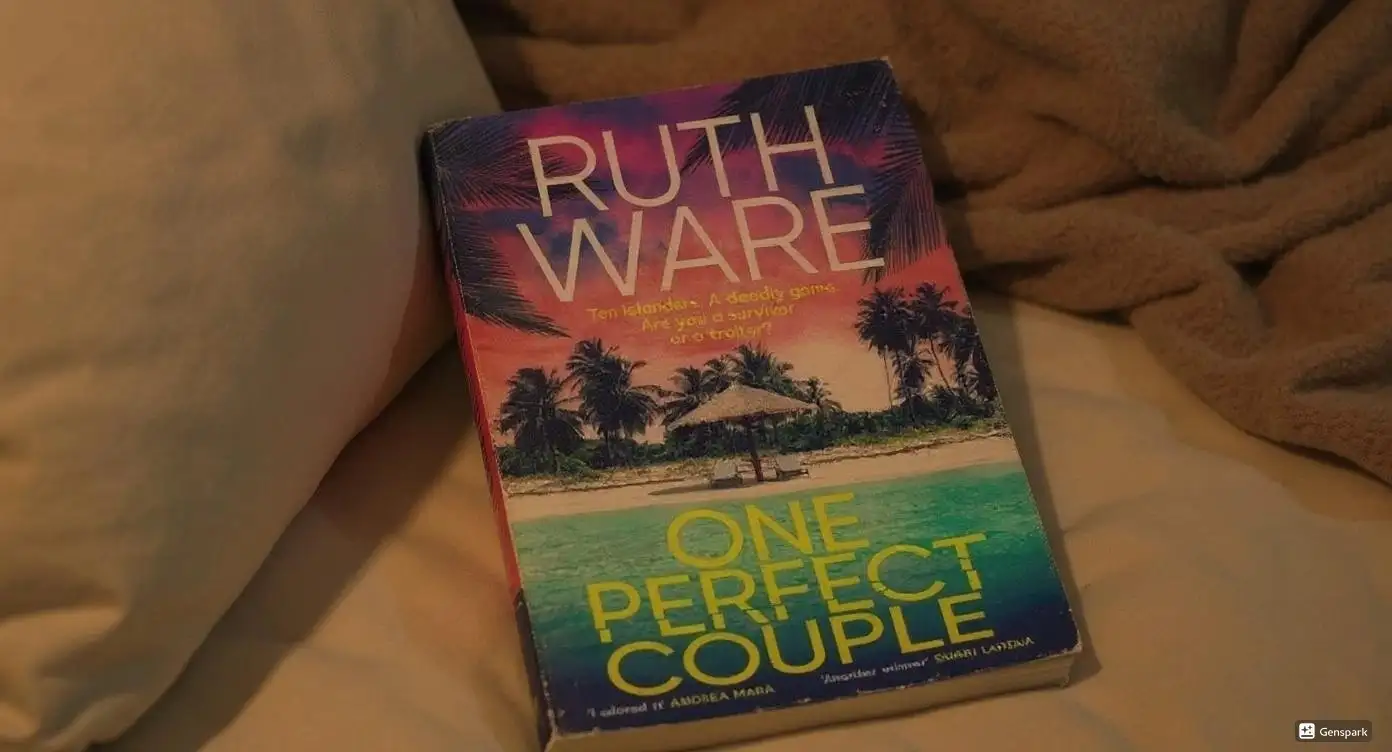I’ve gotta be honest – when I spotted The Exchange on the shelf, I felt that familiar rush of anticipation. After thirty-two years, Mitch McDeere was back, and I couldn’t wait to see what Grisham had in store. I grabbed this book immediately, knowing that sequels to beloved novels can either be jaw-dropping triumphs or crushing disappointments.
As someone who’s devoured over 5,000 books and spent twenty years analyzing legal thrillers for Dionysus Reviews, I approached this with both excitement and skepticism. The premise of a $100 million kidnapping ransom had me hooked, but would Grisham recapture the magic that made The Firm a phenomenon?
Fifteen years have transformed Mitch from a desperate fugitive into a successful Manhattan partner, yet the core tension remains. When Italian colleague Giovanna Sandroni gets kidnapped in Libya’s desert, Mitch faces impossible choices that test both his legal expertise and moral compass. This isn’t your typical courtroom drama – it’s a high-stakes international thriller that left me questioning whether loyalty to colleagues justifies risking everything.
The plot centers on a seemingly straightforward lawsuit between Turkish construction company Lannak and the Libyan government over the abandoned Great Gaddafi Bridge project. However, when Giovanna disappears during their fact-finding mission, the legal case becomes secondary to a terrifying ransom demand that could bankrupt even the massive Scully & Pershing law firm.
Key Takeaways
The international scope transforms this from a domestic legal thriller into a globe-spanning adventure that feels more like espionage fiction than traditional courtroom drama.
Grisham’s character development shows Mitch as a more confident but equally conflicted protagonist who must balance family safety with professional obligations.
The Libyan setting adds authentic geopolitical complexity, reflecting real-world chaos in post-Gaddafi Libya where lawlessness creates perfect conditions for criminal enterprises.
The ransom negotiation process becomes a masterclass in psychological warfare, showing how modern kidnapping operates as a sophisticated business model.
The book functions more as a standalone thriller than a true sequel, requiring little knowledge of the original The Firm to follow the action.
Basic Book Details:
Publishing Information: October 17, 2023 by Doubleday
Genre: Legal Thriller/International Suspense
Plot: Mitch McDeere returns to handle a complex international lawsuit that turns into a deadly kidnapping crisis
Series Information: Book 2 in The Firm series
Page Count: 352 pages
Main Characters:
- Mitch McDeere: Now a successful Manhattan partner balancing family and dangerous legal work
- Abby McDeere: Former small-town teacher turned New York cookbook editor
- Giovanna Sandroni: Brilliant Italian-British lawyer who becomes the kidnapping victim
- Luca Sandroni: Dying partner whose daughter’s kidnapping drives the plot forward
The Firm’s Legacy And Sequel Expectations After Fifteen Years
Mitch McDeere’s Transformation From Fugitive To Manhattan Legal Partner
The Mitch we meet in The Exchange bears little resemblance to the naive Harvard graduate who stumbled into Memphis corruption. I found myself both impressed and slightly disappointed by his evolution. This version of Mitch possesses the confidence and street smarts that come from surviving the Bendini, Lambert ordeal, yet something feels missing from his characterization.
Grisham shows us a man who’s learned to navigate international waters with the same cunning he once used to escape the FBI and the mob. Mitch’s transformation from desperate fugitive to respected partner at Scully & Pershing reflects genuine character growth. However, I couldn’t shake the feeling that this character could have been named anything – the connection to our beloved protagonist feels tenuous at best.
The Memphis backstory gets relegated to brief mentions rather than meaningful integration. As someone who spent countless hours with the original Mitch, I craved more substantial callbacks to his formative experiences. The psychological scars from his previous ordeal seem curiously absent, replaced by a surprisingly well-adjusted family man.
Abby’s Evolution From Small-Town Teacher To New York Cookbook Editor
Abby’s transformation proves more convincing than her husband’s character arc. Grisham crafts a believable progression from scared spouse to accomplished professional. Her new career as a cookbook editor feels authentic and provides nice contrast to Mitch’s high-pressure legal world.
The family dynamics between Abby, Mitch, and their twin sons Carter and Clark add domestic realism to the international thriller elements. I appreciated how Grisham shows Abby as an equal partner in their relationship rather than simply a worried wife waiting at home. Her intelligence and practicality shine through during the crisis.
Yet even Abby feels somewhat disconnected from her Firm origins. The couple’s shared trauma from their Memphis escape should have created deeper emotional resonance throughout their current crisis. Instead, their past feels like distant history rather than formative experience that shapes their present decisions.
Plot Structure And International Legal Thriller Elements
Libya Desert Bridge Lawsuit And Multi-Jurisdictional Legal Complexity
The Turkish construction company Lannak’s lawsuit against Libya over the Great Gaddafi Bridge creates a fascinating legal puzzle. Grisham demonstrates impressive research into post-revolution Libya’s chaotic political landscape. The bridge project – a genuine historical boondoggle – provides perfect metaphor for the wasteful ambitions of fallen dictators.
I found the jurisdictional complications genuinely intriguing. Which court has authority over a Turkish company’s contract with a collapsed Libyan government? How do you collect damages from a nation in civil war? These questions showcase Grisham’s talent for finding legal drama in complex international situations.
The lawsuit’s $400 million price tag makes it worthy of Scully & Pershing’s attention, yet the case feels almost secondary once the kidnapping begins. This shift from legal procedural to action thriller represents a significant departure from classic Grisham territory. While exciting, it left me missing the courtroom strategies that made The Firm so compelling.
Giovanna Sandroni’s Kidnapping And Hundred Million Dollar Ransom Demand
The kidnapping sequence delivers genuine tension and showcases Grisham’s ability to create suspense outside the courtroom. Giovanna emerges as a well-developed character before her capture, making her fate emotionally significant rather than merely plot-driven. Her intelligence and legal expertise make her both valuable to the kidnappers and resourceful in captivity.
The $100 million ransom demand creates impossible mathematics for even the world’s largest law firm. The money must come from Scully, as the female go-between demands that no government be involved. This restriction forces the firm into uncharted territory where insurance policies and corporate resources prove inadequate.
The psychological warfare between the kidnappers and negotiators becomes genuinely gripping. Grisham shows how modern kidnapping operates as sophisticated business, complete with proof-of-life videos and escalating threats. The mystery woman conducting negotiations adds an extra layer of intrigue that kept me guessing about her true identity and motivations.
Character Development And Relationship Dynamics Analysis
Mitch’s Moral Compass Versus Pragmatic Survival Instincts
Mitch’s internal conflict drives much of the novel’s emotional weight. His protective instincts toward Giovanna clash with his obligations to his own family’s safety. I watched him struggle between the lawyer’s duty to clients and the human need for self-preservation. This tension creates genuine moral complexity that elevates the thriller elements.
However, I felt frustrated by how easily Mitch seems to have moved past his Memphis trauma. The Mitch who once lived in constant fear of assassination now jets around the world with surprising nonchalance. His survival instincts feel more theoretical than visceral, lacking the paranoia that would realistically haunt someone with his history.
The relationship between professional duty and personal safety becomes central to Mitch’s character arc. When the kidnappers specifically target him for involvement, he must choose between retreat and engagement. These moments showcase his growth from reactive victim to proactive problem-solver, though I wished for more psychological depth in his decision-making process.
Supporting Cast From Luca Sandroni To Terrorist Antagonists
Luca Sandroni emerges as the book’s most compelling supporting character. His battle with pancreatic cancer adds poignant urgency to his daughter’s rescue. Grisham creates a believable father-daughter relationship that makes Giovanna’s kidnapping personally devastating rather than merely professionally problematic.
The terrorist antagonists remain frustratingly vague throughout most of the novel. While this anonymity creates appropriate menace, I craved more insight into their motivations beyond simple financial gain. The post-Gaddafi power vacuum provides rich material for complex villains, yet Grisham keeps them largely in the shadows.
The supporting cast at Scully & Pershing feels underutilized compared to the memorable characters from The Firm. The managing partners and fellow associates blur together without distinct personalities. This creates a sense that Mitch operates in isolation rather than within a rich professional community.
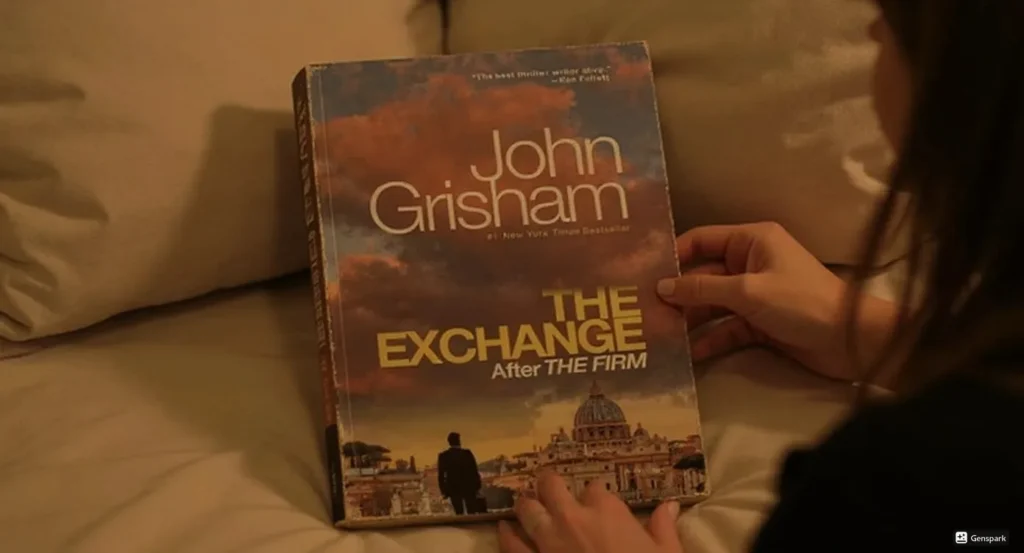
Writing Style And Genre Classification Examination
Shift From Courtroom Legal Drama To International Crime Thriller
Despite the subtitle, the long-awaited follow-up feels more like a Tom Clancy novel than a John Grisham one. This observation captures my primary frustration with The Exchange. The globetrotting adventure feels disconnected from Grisham’s traditional strengths in legal procedure and courtroom strategy.
The pacing accelerates dramatically once the kidnapping begins, sacrificing the methodical buildup that characterizes classic Grisham. While this creates page-turning urgency, it also abandons the chess-like legal maneuvering that made The Firm so intellectually satisfying. The law becomes background rather than foreground.
International settings replace the claustrophobic atmosphere of Memphis or small-town America. While Libya and Rome provide exotic backdrops, they lack the intimate sense of place that grounds Grisham’s best work. The global scope feels more cinematic than literary, prioritizing visual spectacle over psychological insight.
Grisham’s Prose Evolution And Narrative Pacing Techniques
Grisham’s writing style has evolved toward greater efficiency and directness. His sentences carry more punch, and dialogue feels more naturalistic than in his earlier works. The action sequences demonstrate improved technique, creating genuine tension without resorting to gratuitous violence.
However, the prose lacks the distinctive voice that made The Firm so memorable. The narrative reads more like competent thriller writing than distinctively Grisham prose. Character introspection gets abbreviated in favor of plot advancement, reducing emotional depth in favor of narrative speed.
The multiple perspective structure works well for building suspense around Giovanna’s fate. Grisham effectively alternates between her captivity and the rescue efforts, maintaining tension without revealing too much too soon. These techniques show his growth as a suspense writer, even if they move him away from his legal thriller roots.
Pros
The international scope brings fresh energy to Grisham’s formula. Libya’s chaotic post-revolution landscape provides authentic danger that feels ripped from current headlines. The bridge lawsuit offers fascinating insight into how international construction projects become political footballs when governments collapse.
Giovanna Sandroni stands out as one of Grisham’s strongest female characters. Her intelligence, courage, and legal expertise make her more than a mere victim. The father-daughter relationship with Luca adds emotional weight that grounds the thriller elements in genuine human stakes.
The ransom negotiation process delivers genuine psychological tension. Grisham shows how modern kidnapping operates as sophisticated business, complete with proof-of-life protocols and escalating demands. The moral complexity of paying criminals versus risking lives creates compelling ethical dilemmas.
Mitch’s family life adds realistic domestic concerns to the international drama. His protective instincts toward Abby and their sons create believable tension between professional obligations and personal safety. The New York setting provides convincing backdrop for their evolved lives.
The pacing never flags once the kidnapping begins. Grisham maintains steady escalation of stakes while revealing information at appropriate intervals. The book functions effectively as a standalone thriller that requires no knowledge of The Firm to follow the action.
Cons
The connection to The Firm feels superficial beyond character names. Fast-paced and engaging, this book delivers a great plot but may disappoint readers who were looking for a stronger tie to the Mitch McDeere we fell in love with. The Memphis backstory gets relegated to passing mentions rather than meaningful integration.
The shift from legal procedural to action thriller abandons Grisham’s greatest strengths. Courtroom strategy and legal maneuvering take backseat to international intrigue. Readers expecting traditional Grisham legal drama will find themselves in unfamiliar territory that doesn’t always play to the author’s advantages.
Character development suffers from the accelerated pacing. Mitch feels more like a generic thriller protagonist than the specific character we remember. His psychological evolution from his traumatic past gets glossed over rather than explored in meaningful depth.
The villains remain frustratingly anonymous throughout most of the novel. While this creates appropriate menace, it also reduces the antagonists to faceless threats rather than compelling opponents. The post-Gaddafi chaos provides rich material for complex villains that goes largely unexplored.
The legal elements feel underdeveloped compared to the action sequences. The Turkish construction lawsuit becomes mere backdrop rather than central focus. Readers seeking the intricate legal strategizing that characterizes Grisham’s best work will find themselves disappointed by the simplified approach.
Final Verdict
The Exchange succeeds as a competent international thriller while failing as a satisfying sequel to The Firm. Grisham demonstrates his continued ability to craft page-turning suspense, yet the book feels disconnected from the Memphis magic that made his reputation. The globetrotting adventure prioritizes exotic locations over psychological depth.
After finishing this book around midnight in my reading chair, I felt entertained but not emotionally satisfied. The story delivers on its thriller promises while shortchanging the character development that would make it truly memorable. It’s a book that works in the moment but fades quickly from memory.
For readers seeking pure escapist entertainment, The Exchange delivers sufficient thrills and international intrigue. However, those hoping for a true return to Mitch McDeere’s world will find themselves missing the intimate character work and legal complexity that defined the original. The book stands better as Grisham’s entry into international thriller territory than as a continuation of his most beloved story.
The hundred million dollar question becomes whether sequel expectations should override the book’s standalone merits. As a thriller, it succeeds admirably. As a Firm sequel, it feels more like missed opportunity than triumphant return. Readers approaching it with appropriate expectations will find themselves more satisfied than those seeking nostalgia fulfillment.
Dionysus Reviews Rating: 6/10
Sip The Unknown—Discover Stories You Never Knew You’d Love!
Dionysus Reviews Has A Book For Every Mood
Biography & Memoir
Fiction
Mystery & Detective
Nonfiction
Philosophy
Psychology
Romance
Science Fiction & Fantasy
Teens & Young Adult
Thriller & Suspense
Frequently Asked Questions
What makes this book different from other John Grisham novels?
The Exchange represents Grisham’s most ambitious departure from domestic legal drama into international thriller territory. Unlike his typical courthouse-centered plots, this novel spans multiple continents and focuses more on kidnapping negotiations than legal procedure.
The shift from small-town America to global settings creates a different atmosphere entirely, feeling more like espionage fiction than traditional legal thriller.
How does Mitch McDeere’s character compare to his portrayal in The Firm?
The Mitch in The Exchange bears limited resemblance to the anxious Harvard graduate from The Firm. This version displays confidence and international sophistication that feels almost disconnected from his Memphis origins.
While character growth is expected after fifteen years, the psychological scars from his previous ordeal seem curiously absent, replaced by a surprisingly well-adjusted family man who operates without the paranoia that would realistically haunt someone with his history.
Is prior knowledge of The Firm necessary to understand this book?
The Exchange functions effectively as a standalone novel requiring minimal knowledge of its predecessor. Grisham provides sufficient backstory through brief mentions rather than detailed exposition.
New readers can easily follow the plot and understand character relationships without having read The Firm, though they’ll miss some emotional resonance that comes from shared history with these characters.
How realistic is the Libyan setting and political situation?
Grisham demonstrates impressive research into post-revolution Libya’s chaotic landscape. The Great Gaddafi Bridge project was a real historical boondoggle, and the author accurately portrays the lawlessness and power vacuum that followed the dictator’s fall.
The kidnapping scenario feels authentically grounded in current regional instability, making the international legal complications believable and the danger genuine.
What role does the ransom negotiation play in the overall plot?
The hundred million dollar ransom demand becomes the novel’s central driving force, transforming a straightforward legal case into a psychological warfare scenario. The negotiation process showcases how modern kidnapping operates as sophisticated business, complete with proof-of-life protocols and escalating threats.
These scenes provide the book’s most compelling tension, though they also move the story away from traditional legal thriller territory into pure suspense fiction.
